BTK Inhibitors
Impetis has developed BTK inhibitors which are designed for selectivity and reversibility, making them highly differentiated from the competition in terms of their safety and sustained action over a long duration of treatment. Impetis’ BTK inhibitors are differentiated in the following ways:
Reversible and non-covalent inhibition
- No risk of inhibition of other cysteine-containing kinases and other enzymes by covalent modification
- No potential for drug resistance due to mutation of Cys-481 residue of BTK that forms covalent bonding with irreversible inhibitors
- No potential for covalent protein conjugate adducts formation leading to immunogenicity or loss of selectivity
Intrinsic selectivity, with no/minimal inhibition of other kinases that may have potential safety risks
- TEC-sparing: Decreased platelet dysfunction/bleeding risk
- JAK-3-sparing: Decreased risk for profound immunosuppression
- EGFR-sparing: Decreased potential for diarrhea/GI toxicity
Small oral bid dose leading to full target coverage over 24 hrs, thus reducing the risk of Richter’s transformation or other mutations/clones, without compromising the safety and side-effect profile
Key assets in Impetis’ BTK Inhibitor platform include the following
PNQ-849: A reversible BTK inhibitor for Inflammation and Auto-immune Indications
Robust efficacy in standard models of Autoimmune disease
- Robust efficacy at both BID and QD dosing in 2 RA models: Collagen Induced Arthritis (CIA) in mice and Adjuvant Induced Arthritis (AIA) in rats
Clean preclinical safety profile
- Excellent selectivity over other BTK and diverse non-BTK family kinases vs. irreversible inhibitors and other drugs
- Selectivity vs. diverse 100 kinase and 121 DrugMatrix targets and hERG
- Non-mutagenic in mini-Ames test
- Well tolerated with dose-related TK profile in 28-day safety study in rat with a NOEL of 180 mg/kg/day
IP Status
- Composition of Matter Patent covering PNQ-849 and PNQ-617 has been granted in US (US9,233,983)
IND ready profile, with clear development path
- Process optimization completed
- All IND directed safety studies have been completed
PNQ-154: an early stage reversible BTK inhibitor positioned for
“Ibrutinib Resistant” Cancers
Robust efficacy in standard models
- Robust efficacy at both BID and QD dosing in 2 RA models: Collagen Induced Arthritis (CIA) in mice and Adjuvant Induced Arthritis (AIA) in rats
- Diffuse large B-cell lymphoma (DLBCL) Xenograft model
Clean preclinical safety
- Excellent selectivity over other BTK and diverse non-BTK family kinases vs. irreversible inhibitors and other drugs
- Selectivity vs. diverse 100 kinase and 121 DrugMatrix targets and hERG
- 14 day repeat oral dose toxicity in rats completed
Clear IP
- Patent granted- field in April 2013 under PCT and was published (WO2013157022) in October 2013
IND ready in under a year
- Process optimization and final form selection ongoing
- Material generation for IND-enabling studies initiated


